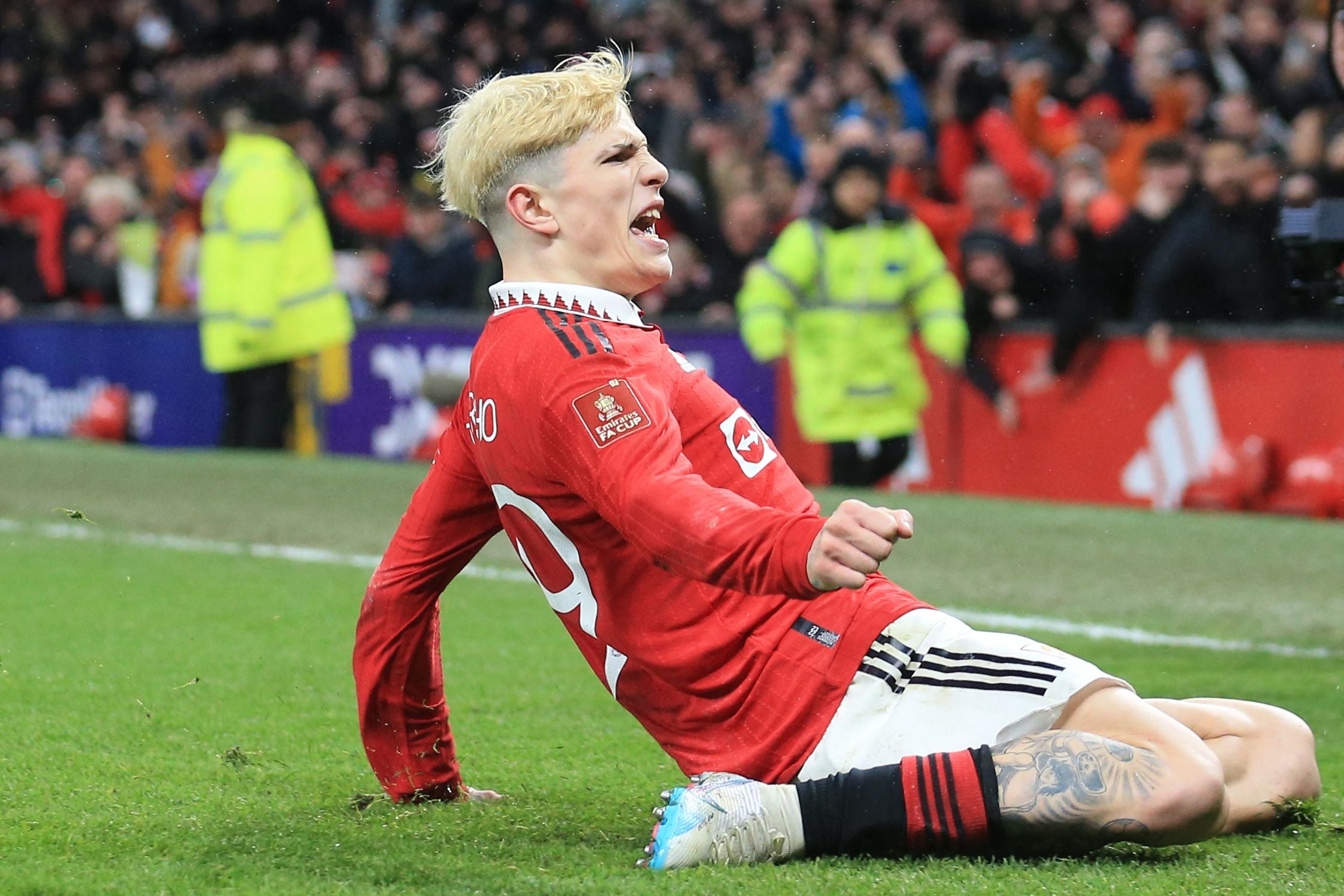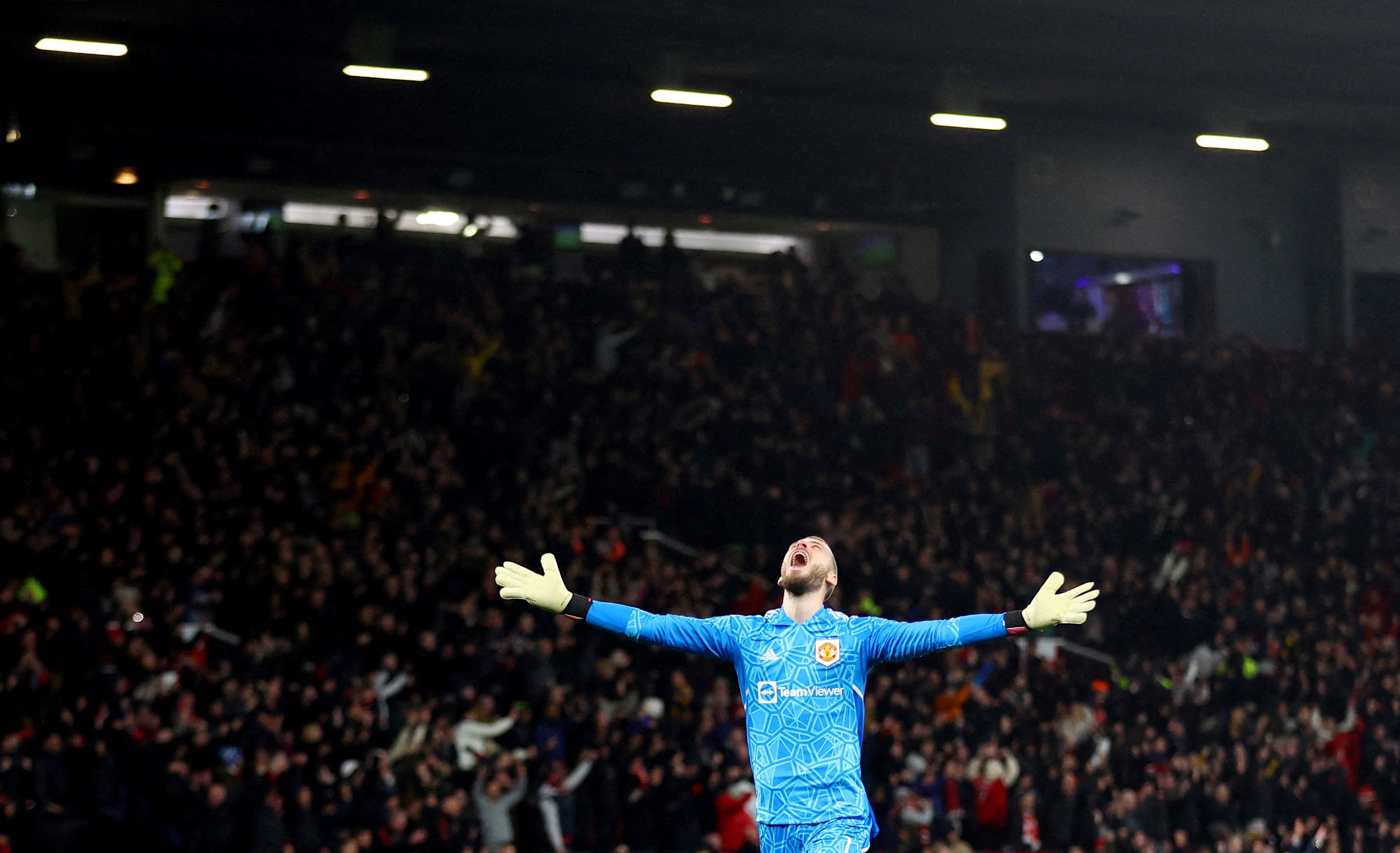
Forty-one down, 24 to go? Manchester United’s marathon season could extend to 65 games. If they are no longer in four competitions, it is because they have won the first of them. They could have ended their interest in a second in four days, and in very different way, but conjured a three-goal comeback in 18 minutes. An FA Cup quarter-final beckons: with Fulham at home, impressively as Marco Silva’s side have done this season, probably a semi-final too.
But then, as Sir Alex Ferguson can confirm, lifting the FA Cup can involve a comeback or two. There were two late goals when his United beat Liverpool in the fourth round in 1999 and they got a treble. There were two late strikes against West Ham in the fifth round in 2023 and Erik ten Hag’s team remain on course for a different kind of treble. Manchester City may stand in their way in the FA Cup, but not yet. Arsenal may form a barrier on the path to the Europa League final, but not yet. United seem in this for the long haul.
They have played the equivalent of a full season, at least for clubs who fail to win a domestic cup tie and aren’t in Europe, by the start of March. They face a frantic three months, of midweek matches and continental trips. Their physical and mental reserves will be tested. So, too, Ten Hag’s actual reserves and, if the understudies were underwhelming at the start against West Ham, the two decisive goals came from Alejandro Garnacho and Fred, who might not rank in Ten Hag’s strongest 11. The manager was pleased that Wout Weghorst contributed, albeit indirectly, by jumping and pressing, to all three goals. His fellow Dutchman has not scored in 10 games. United have won eight of them and drawn in the Nou Camp in one of the others.
It may be of scant consolation to West Ham that they are in good company: United came from behind to beat Manchester City and Barcelona at Old Trafford so perhaps it was unsurprising they did likewise against the side 16th in the Premier League.
“We showed that we can that we have the character to deal with difficult situations, that the team stays composed and keeps going,” said Ten Hag. “The team showed personality and never gave up. It was a massive performance from our team in way of mentality. The belief is so strong, the resilience is so strong and they hate losing.”
And yet the context makes it more admirable and shows the scale of the job Ten Hag is doing. For years, it was taken for granted that United hated losing: it was part of Ferguson’s personality and he recruited and forged likeminded characters. Yet when they finished last season with six defeats in 10 games and started Ten Hag’s reign with two in two, it seemed as though some accepted losing, some didn’t mind losing, some simply blamed others for losing.
Most of them are the same players; not all, because Casemiro and Lisandro Martinez are forceful figures Ten Hag has introduced and the Brazilian was not a United player when his team lost to Brentford and Brighton and his introduction for the second half against West Ham brought United more drive. But many of them were the players who seemed to have a losing mentality when Ralf Rangnick was manager. They looked helpless and hapless, beaten by an array of opponents and then invariably savaged by Roy Keane thereafter.

Ten Hag has brought a shift in attitude and a change in fortunes. One school of thought is that, by beating West Ham, they did what they ought to. They won a winnable game. At a superficial level, it is true.
But for the best part of a decade, United won too few of the winnable games. When Brighton won at Old Trafford in August, they continued a trend that started during David Moyes’ tenure. A fortress was conquered: by West Brom, Everton, Newcastle and Swansea. Then, under Louis van Gaal, by Swansea, Southampton, West Brom, Norwich and Southampton for a second time. Jose Mourinho’s United went 40 games unbeaten at Old Trafford but then lost to West Brom and, on penalties, to Derby. Ole Gunnar Solskjaer’s side went down at home to Cardiff, Crystal Palace, Burnley, Palace again, Sheffield United, Leicester, West Ham and Aston Villa. Under Ralf Rangnick, home defeats came to Wolves and to Middlesbrough on penalties.

That is even before mentioning home losses to their big six rivals or European sides or away defeats. Most were to clubs who, until then, had long waits for victory at Old Trafford, often coinciding with Ferguson’s reign. Put United a goal down at home to a mid-table or relegation-threatened team under some of Ten Hag’s predecessors, in some previous seasons and they would have lost. They weren’t a team with that resolve or resilience. And if they end up playing 65 games this season, if they carry on mounting comebacks, if they add to a record of 16 wins in 17 at Old Trafford, it is because they have rediscovered it.







